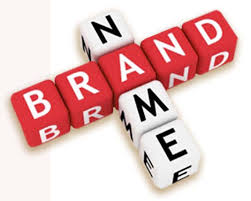Getting your Brand Identity right

Brand Identity is the outward expression of a brand. It is the sum total of the visual identity that comes to the mind of the consumers when they think about your brand. This includes the brand name, logo, pay off line/tag line, trade mark, visual appearance/packaging or even sound as well as your brand collaterals like letterhead, call cards, fliers, banners etc. The elephant for instance comes to mind when we think about First bank and when you hear ‘everywhere you go’ , you know it’s definitely MTN. Brand identity therefore creates a recall and top of mind awareness for your brand in the mind of people.
Brand Name
The name of a brand is what the brand wants to be known as by everyone that comes in contact with it. The name of a brand can make or mar it. The rules of the thumbs are:
- A brand name should be easy to pronounce
- It should be easy to remember
- It should attract attention
- It should be distinct as much as possible
- It should not sound too close to another brand name especially in the same category
Logo Elements: Icon, Colour, Fonts, Pay off line
Logo is a combination of icon, texts and colours that communicate the fundamental identity of a brand. It is the physical representation of such brand. A lot of business owners have logos that they cannot explain what such logos mean or communicate. It is a sin!.
You must be able to explain in clear terms what your logo represents. The icon in the logo, the colour choice, the kind of fonts/typeface must be in sync with what the brand stands for. Colours are very important and should not be used indiscriminately. Have you for instance wondered why most eateries and fast food brand have yellow and red as dominant colours? This is because red triggers stimulation, appetite, hunger, it attracts attention. Yellow triggers the feelings of happiness and friendliness.. You will all agree with me hunger comes with a very strong emotion and your experience after a nice time at the eatery is meant to be that of happiness. Purple communicates royalty, blue is about warmth, friendliness and loyalty, green communicates growth / wealth/ fertility. Each colour stands for something. We should therefore consider all these before choosing a random graphic artist to design just any logo for you. Branding should be deliberate and well thought out.It of does not cost fortune to engage the services of an expert for this.
The fonts you use are also very important. I am sure we all notice that pre-school and elementary school brands use playful fonts because they appeal to children. It will be a major error for a brand in the financial services sector to use the type of fonts used by pre-schools. It is also advisable that you stick to a particular font in all your communications.
Your pay off line or tag line is a statement that states what you want to be known for or what your major proposition or bragging right is. Pay off lines can be changed from time to time but should not be indiscriminate. I will always advise that your pay off line should not be too long. A maximum of 8 words is advised. The pay off line should strike a chord with the target audience. Let us consider the payoff line for Nike – Just do it and that of Lagos lottery – E fit be you. The pay off line for Lagos Lottery definitely identifies with their target audience who are mainly semi-illiterates and who are at home with Pidgin English.
Packaging
The packaging of your product is also very important as it influences the look and feel of the product. Sometimes what we buy is the package and not contents. Have you ever wondered why coca cola keeps changing the shape of its bottle? Do you also note that the bobo drink bottle is so shaped in a way that it is attractive to children who are the target audience?. Your packaging must be attractive and should resonate with your target audience.
Brand Collaterals
Talking about brand collateral’s: these refer to your call cards, letterheads, fliers, brochures, marketing literature’s, roll up banners and the rest. These are items that represent you outside there. People can easily form an opinion about your business after exchange of call cards; your call card is a major marketing tool. It speaks volumes about you when you are not there. Your fliers, brochures and other collateral’s must also be on point. Small issues like typo errors and wrong choice of colours can turn people off. You should endeavor to get all of these right all the time. The money you feel you are saving by doing a shoddy job with those brand collateral’s may be too small compared to what you lose and the wrong perception you are selling.


